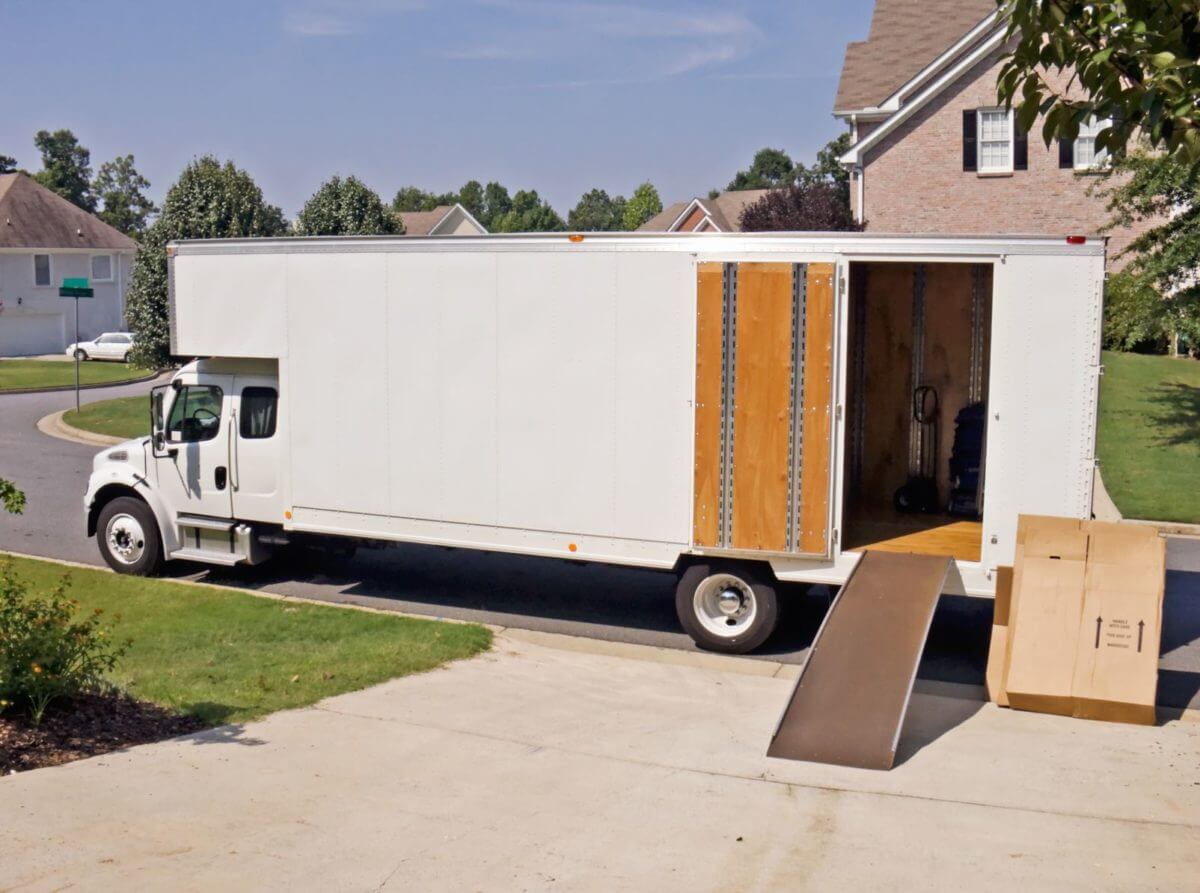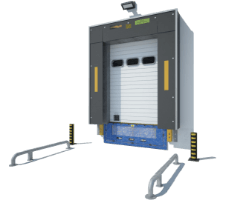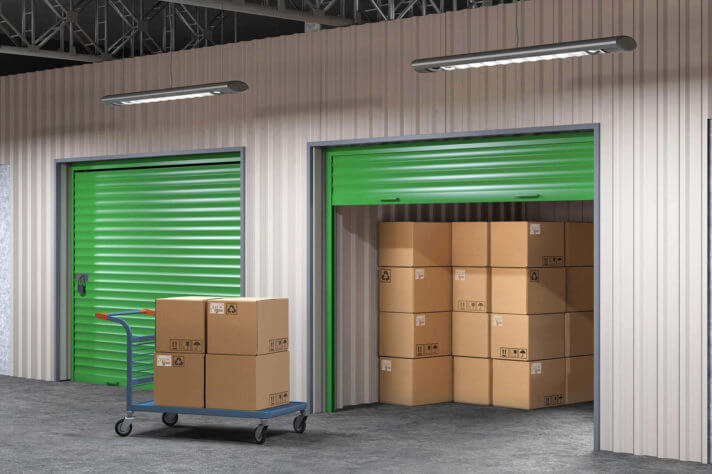When you consider that relocation across the country could cost up to $15,000, you might start wondering how to reduce costs when moving. The good news is that you can do it simply by applying some budget-friendly moving tips and making the process smoother. Let’s check out how to do it and have hassle-free relocation.
Save up with some top-notch tips
How to Reduce Costs When Moving Cross-Country?
Reducing moving costs involves strategic planning and smart choices. Start by creating a detailed budget, choosing the right time to move, and decluttering. Compare cross-country moving companies, consider alternative options, and utilize discounts and offers. Efficient packing and careful coordination can also help minimize expenses, ensuring a budget-friendly and stress-free move.
The overall relocation costs are higher up to 15% than the last year
Saving Money on Moving Is Possible When Planning Ahead
There is no successful relocation without proper planning. In fact, many Americans – 86% of them – regret relocating. Thoughtful preparation can help you avoid unexpected expenses and find opportunities to save money throughout the relocation process. As a further result, you won’t wonder why relocating is so traumatic. Not to mention that relocation depression is a real thing, and you need to do all you can to avoid it.
Moving on a Budget? Create a List of All Expenses to Keep You Updated
One of the most common relocation mistakes is not having a list of the possible expenses. It’s because unexpected things can easily happen. When you don’t have the budget for it, the relocation can instantly become a nightmare.
Creating a detailed relocation budget is essential for managing expenses and avoiding overspending. Start by estimating primary costs, including transportation, packing materials, and labor. Transportation is often the largest expense, whether you’re hiring a cross-country moving company or renting a truck.
Include costs for packaging materials, like boxes and tape, and labor costs, whether you hire cross-country movers or get help from friends. Additionally, set aside funds for unexpected expenses, such as last-minute supplies, extra transportation fees, or temporary accommodations. This will help you avoid financial stress and ensure a smoother experience.
Choosing the Right Time to Move
The timing of the relocation can significantly impact costs. To save money, avoid peak times like summer, weekends, and month beginnings or ends.
Instead, opt for off-peak seasons such as late fall, winter, or early spring, and consider mid-week days when demand is lower.
Additionally, some relocation companies offer discounts for flexible relocation dates.
If you can adjust the schedule by a few days or weeks, you might secure a better rate.
The busiest moving season occurs between Memorial Day and Labor Day, or mid-May to mid-September
Discuss potential discounts with the cross-country moving company to see if adjusting the timeline could lead to significant savings.
It could be inconvenient, but relocating off-season is more affordable
Smart Packing Tips to Cut Costs
Strategic packing not only ensures your belongings arrive safely but can also significantly reduce overall costs. This being said, here are some tips you should follow and have effortless and on-budget wrapping.
Declutter Before the Big Day
Decluttering after booking a top-notch cross–country moving service is a powerful way to reduce costs and simplify the relocation process. Start by sorting and donating unwanted items to charity, which can also be tax-deductible. Hosting a garage sale is another excellent way to offload belongings you no longer need while making some extra cash. Embracing a minimalist relocation means you’ll have fewer items to pack and transport, leading to lower expenses and a more organized new home.
DIY Packing vs. Professional Packing Services
When it comes to protecting belongings, you have the option to do it yourself or hire professional packing services. A cost comparison shows that DIY packing is generally cheaper, but it requires more time and effort. One of the low-cost packing tips is to start early, use proper techniques, and label boxes clearly.
However, for valuable or fragile items, professional help may be worth the investment to ensure these items are packed safely and securely. Let our experienced team of packers from Cross Country Moving Company do all the hard work. We have many years of experience and we’ll ensure your belongings are safe and sound.
Using Cost-Effective Packing Materials
Using cost-effective materials can significantly cut expenses. Look for free or low-cost supplies from local stores or online marketplaces. Repurposing household items like suitcases, laundry baskets, and towels can also save money on packing materials. Additionally, you can borrow or rent packing supplies from friends to further reduce costs.
Finding Affordable Long-Distance Moving Services
Securing affordable cross-country moving services is key to keeping costs under control. By carefully comparing different options and being mindful of alternative solutions, you can find the best services to fit your budget without compromising on quality. When looking for a long-distance moving company, it’s essential to compare various options to find the most cost-effective and reliable service. Here are three steps you can take:
- Requesting multiple quotes – This will give you a clear picture of the market rates and help you identify the most affordable options. Be sure to provide the same details to each company to get accurate and comparable quotes.
- Evaluating services and pricing – Check out the services in each quote, such as packaging, loading, and unloading. Compare them to the pricing offered to determine which company provides the best value for money. Don’t just focus on the cheapest option, but take the quality and range of services offered into account as well.
- Reading reviews and testimonials – Reading reviews and testimonials from previous customers is crucial for assessing a relocation company’s reliability and quality of service. Look for consistent positive feedback and pay attention to any recurring issues mentioned by multiple customers. This will help you make an informed decision and choose a reputable company.
Opt for Alternative Relocation Options
Don’t overlook the budget-friendly alternatives to full-service long-distance movers, such as renting a truck, using portable containers, or hiring labor-only services. Renting a truck and doing it yourself saves money but requires more effort. Portable containers let you pack at your own pace and are conveniently transported to your new home. Labor-only services help with heavy lifting, allowing you to manage packing and transport yourself, reducing costs significantly.
Did you know that 37.5% of Americans rent a truck when relocating
Strategies for Reducing Transportation Costs
Transportation is often one of the most significant expenses in any move, especially for long distances. By implementing strategies to optimize load and space and reduce the number of trips, you can significantly cut down on these costs.
Optimizing Load and Space
Maximizing the use of space in the truck can help you save money. It will also make the relocation much easier since you’ll avoid the need for additional trips or a larger vehicle. This being said, here are some cost-effective moving solutions to follow:
- Use efficient packing techniques – Use smaller boxes for heavy items and larger boxes for lighter ones. Pack items tightly to prevent shifting during transit and to make the most of the available space. Use linens, towels, and clothing to fill gaps and protect fragile items.
- Disassemble furniture to save space – Remove legs from tables, take apart bed frames, and detach any other removable parts. This not only helps you fit more into the truck but also makes it easier to load and unload.
- Load the truck strategically – Start with the heaviest items, such as appliances and furniture, placing them towards the front of the truck. Fill in with smaller boxes and items, stacking them to utilize vertical space. Ensure a tight fit to prevent items from shifting during transport.
Reducing the Number of Trips
One of the affordable relocation strategies you can easily apply is minimizing the number of trips. It can significantly cut fuel costs and save time. Plan a single-trip move by calculating the right truck size and packing efficiently to avoid multiple trips, reducing the risk of damage or loss. For long-distance moves, coordinate logistics by planning the route, considering rest stops and fuel stations, and consolidating items to fit into one trip.
Do yourself a favor and plan the loading process adequately
Use All Discounts and Offers for Reducing Moving Expenses
Taking advantage of discounts and offers can make a significant difference in reducing overall costs. By being proactive and seeking out available promotions, you can save a considerable amount of money.
Taking Advantage of Relocation Company Promotions
Many relocation companies offer promotions and discounts throughout the year. Look for seasonal discounts during off-peak times, like late fall and winter, to get reduced rates. Check for special offers around holidays or slower periods. Some companies also have referral programs and loyalty discounts, so ask friends for referrals or inquire about discounts for returning customers. Being aware of these opportunities can help you secure a better deal.
Leverage Tax Deductions and Reimbursements
Understanding and using tax deductions and reimbursements can help offset relocation expenses. Check if you’re eligible for expense deductions, especially if the move is job-related. Keep detailed records and research specific requirements.
If moving for work, see if your employer offers relocation packages or reimbursements for expenses like transportation and temporary housing. Discuss options with HR to maximize these benefits. By leveraging tax deductions, employer reimbursements, and available discounts, you can significantly reduce the relocation costs and enjoy a budget-friendly transition to the new home.
Check out all possibilities with the company
Check Out Some Post-Move Cost-Saving Tips
Even after you’ve settled into your new home, there are still ways to save money. By setting up utilities and services efficiently and unpacking strategically, you can avoid unnecessary costs and make the transition smoother.
Set Up Utilities and Services Efficiently
Effectively managing utilities and services can prevent extra costs. Compare providers and plans for utilities, internet, and other services to find the best deals, and consider bundling to save money. Use online tools to find cost-effective options. Avoid overlaps by carefully timing the disconnection and connection of utilities, ensuring you don’t pay for services at both locations simultaneously, and avoiding unnecessary services or features that increase bills.
Unpack Strategically to Avoid Extra Costs
Unpacking thoughtfully can help you avoid extra costs from damage and disorganization. Fight the unpacking procrastination and start with essentials like kitchen supplies, bedding, and toiletries to avoid buying duplicates or temporary replacements. Unpack gradually to prevent damaging items, tackling one room at a time and placing each item carefully to prevent accidents and breakages.
After a move, most people need 180 days to fully unpack their stuff
Relocate Like a Pro Without Spending the Fortune
Reducing relocation costs requires smart planning and decision-making. Create a detailed budget, choose the right time to move, declutter, and compare services. Use discounts, optimize transportation, and set up the new home efficiently. For a budget-friendly, stress-free move, consider professional assistance from a Cross Country Moving Company. Contact us and have the best experience possible!
















